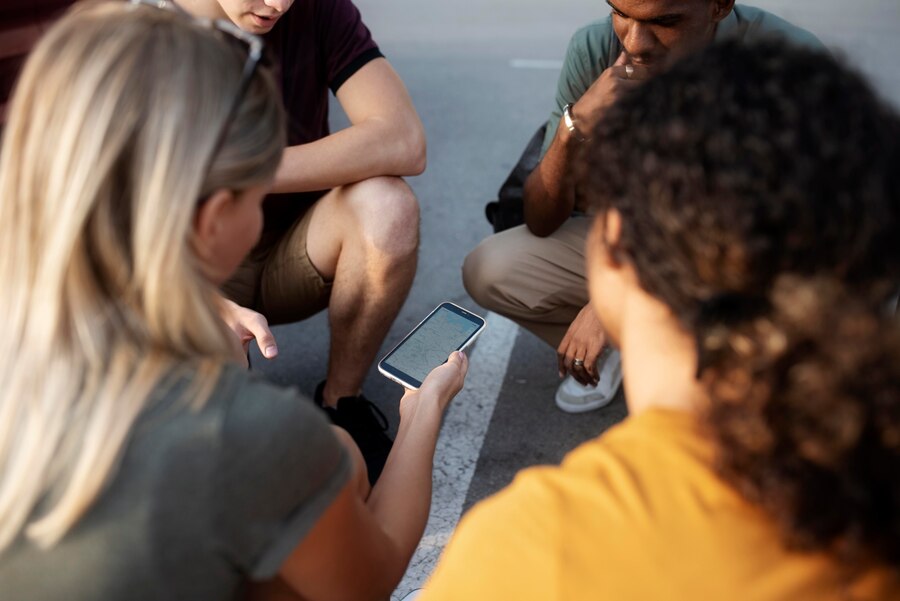Navigating the path to recovery can be a challenging and isolating experience, but it doesn’t have to be one you face alone. Community resources, particularly local support groups, can provide the much-needed guidance and companionship essential for a successful recovery journey. This article aims to guide you on how to connect with local support groups and other community resources that can bolster your recovery efforts.
In this comprehensive guide, we will explore the significance of community resources, the various types of support groups available, and the myriad benefits they offer. Furthermore, we will provide practical advice on how to locate these groups and make the most of your participation. Whether you are just beginning your recovery journey or looking to strengthen your existing support network, understanding how to tap into these resources can make a world of difference. Let’s delve into the ways you can build a supportive community around you, ensuring you don’t have to walk this path alone.
Contact Us for Detox Services
Understanding the Importance of Community Resources
Connecting with community resources is a vital step in the recovery journey. These resources provide essential support and facilitate a network of care that can significantly enhance an individual’s well-being. Here, we will delve into the critical role that support groups play in recovery, the types of support groups available, and the numerous benefits of participating in local support groups.
The Role of Support Groups in Recovery
Support groups are a cornerstone of effective recovery programs. They offer a structured environment where individuals can share their experiences, challenges, and triumphs with others who understand their journey. This mutual understanding fosters a sense of camaraderie and reduces feelings of isolation, which are common in the recovery process. The collective wisdom shared within the group can provide practical strategies and emotional support, making the path to recovery more manageable.
Types of Support Groups Available
Support groups come in various forms, each tailored to meet the needs of different individuals and recovery stages. Some of the most common types include:
- 12-Step Programs: These include well-known groups like Alcoholics Anonymous (AA) and Narcotics Anonymous (NA). They follow a structured program of steps designed to help individuals achieve and maintain sobriety.
- Non-12-Step Programs: Alternatives to the traditional 12-step approach, these groups, such as SMART Recovery, focus on self-empowerment and cognitive-behavioral techniques.
- Specialized Support Groups: These cater to specific populations, such as LGBTQ+ individuals, veterans, or those with co-occurring mental health disorders. They address unique challenges and provide targeted support.
- Peer Support Groups: These are often led by individuals who have experienced similar struggles and are trained to provide guidance and support.
- Family Support Groups: These groups, like Al-Anon and Nar-Anon, are designed for the loved ones of those in recovery, offering them a space to share their experiences and gain support.
Benefits of Participating in Local Support Groups
Engaging with local support groups offers numerous benefits that can significantly enhance the recovery process:
- Emotional Support: Being surrounded by individuals who understand your struggles can provide immense emotional comfort and reduce feelings of loneliness.
- Accountability: Regular participation in a support group can help keep individuals accountable to their recovery goals, providing motivation to stay on track.
- Skill Development: Support groups often teach valuable coping skills and strategies for managing stress, triggers, and other challenges of recovery.
- Resource Sharing: Members can share information about additional resources, such as local treatment centers, therapists, and community programs.
- Sense of Belonging: Building connections within the group fosters a sense of belonging and community, which is crucial for long-term recovery.
Understanding the importance of community resources is the first step towards leveraging them for your recovery journey. By recognizing the vital role that support groups play, the various types available, and the myriad benefits they offer, you can make informed decisions about which resources will best support your path to wellness.
How to Find Local Support Groups
Finding the right support group can be a crucial step on your journey to recovery. Here are several effective strategies to help you locate local support groups in your community:
Using Online Directories and Resources
The internet offers a wealth of information, making it easier than ever to find support groups tailored to your needs. Websites like the Substance Abuse and Mental Health Services Administration (SAMHSA) and the National Alliance on Mental Illness (NAMI) provide comprehensive directories of support groups across the country. Additionally, platforms such as Meetup and Facebook often host local groups and events focused on recovery and mental health. By entering specific keywords related to your needs, you can quickly identify nearby support groups that align with your recovery goals.
Consulting Healthcare Providers
Healthcare professionals, including doctors, therapists, and counselors, are invaluable resources when searching for local support groups. These professionals often have extensive networks and can recommend groups that suit your specific circumstances. Don’t hesitate to ask your healthcare provider for a list of local support groups or any recommendations they might have. They may also be aware of specialized groups that address particular issues, such as substance abuse, mental health conditions, or dual diagnosis.
Community Centers and Local Organizations
Community centers and local organizations often host or have information about support groups in the area. Libraries, churches, and civic organizations frequently offer meeting spaces for support groups or have bulletin boards with information about upcoming meetings. You can visit these community hubs to inquire about available resources. Local non-profit organizations dedicated to mental health, addiction recovery, and social services are also excellent places to seek information. Many of these organizations have partnerships with support groups and can provide guidance on how to get involved.
By utilizing these strategies, you can find a support group that meets your needs and provides the community connection essential for your recovery journey.

Making the Most of Your Support Group Experience
Engaging with a support group can be a transformative experience, but the benefits you reap will largely depend on how you approach and participate in these gatherings. Here are some strategies to ensure you make the most of your support group experience:
Attending Regularly and Participating Actively
Consistency is key when it comes to support groups. Regular attendance allows you to build trust and rapport with other members, creating a safe and supportive environment where everyone feels comfortable sharing their experiences. Make a commitment to attend meetings regularly and make it a priority in your schedule.
Active participation is equally important. Share your thoughts, feelings, and experiences openly and honestly. While it may be intimidating at first, remember that everyone in the group is there for mutual support. Listening attentively to others and providing feedback can also be incredibly therapeutic, helping you to gain new perspectives and insights.
Building Connections Within the Group
One of the most valuable aspects of a support group is the sense of community it fosters. Take the time to build connections with other members both during and outside of group meetings. This can involve exchanging contact information, participating in group activities, or even forming smaller, more focused sub-groups for additional support.
Building strong relationships within the group can provide an added layer of support and accountability, which is crucial in maintaining motivation and commitment to your recovery journey. These relationships can often extend beyond the group, providing lasting friendships and a supportive network you can rely on in times of need.
Applying What You Learn to Your Daily Life
The insights and coping strategies you gain from your support group are valuable tools that can assist you in your daily life. Take notes during meetings and reflect on the discussions afterward. Identify specific advice or techniques that resonate with you and think about how you can incorporate them into your own routine.
Applying what you learn can involve setting personal goals, practicing new coping mechanisms, or simply adopting a more positive mindset. The key is to take actionable steps that will help you translate the support and knowledge gained from the group into tangible improvements in your well-being.
In conclusion, making the most of your support group experience requires regular attendance, active participation, building meaningful connections, and applying the lessons learned to your daily life. By doing so, you can maximize the benefits of this invaluable community resource and enhance your journey toward recovery.
Oceanside Wildfire Safety at Regan Roofing
In the journey toward recovery, the significance of community resources and local support groups cannot be overstated. These groups offer a vital lifeline, providing emotional support, shared experiences, and practical advice that can make a substantial difference in your path to wellness. By understanding the various types of support groups available and the benefits they offer, you can make informed decisions that align with your personal needs and goals.
Finding local support groups is more accessible than ever, with numerous online directories, healthcare providers, community centers, and local organizations ready to assist you. Take the first step by exploring these resources and reaching out to the ones that resonate with you.
Once you have found a suitable support group, your commitment and active participation will be key to reaping the full benefits. Regular attendance, building meaningful connections, and integrating the insights gained into your daily life can significantly enhance your recovery journey.
Ultimately, connecting with community resources and support groups equips you with the tools and support network necessary for sustained recovery and personal growth. Embrace this opportunity to build a stronger, healthier future with the support of those who understand and share your experiences.
FAQs
Understanding Support Groups
- Why are support groups beneficial in addiction recovery?
Answer: “Connecting with Community Resources: Finding Local Support Groups” acknowledges the power of shared experiences. Support groups provide a safe space to connect with others who understand your struggles and offer encouragement in recovery at All American Detox.
- What types of support groups are available for people in recovery?
Answer: There are groups for various needs, including Alcoholics Anonymous (AA), Narcotics Anonymous (NA), and groups focused on specific substances or co-occurring mental health issues. All American Detox can help you find a relevant group.
- What can I expect to happen at a support group meeting?
Answer: Meetings typically involve sharing experiences, offering support, and providing encouragement. Some groups follow a structured format, while others offer open discussions. All American Detox can connect you with groups that fit your needs.
Finding Local Support Groups
- How can I find support groups in my area after leaving All American Detox?
Answer: Several resources can help! National hotlines like SAMHSA (Substance Abuse and Mental Health Services Administration) or NIDA (National Institute on Drug Abuse) offer support group directories. All American Detox can also provide local listings.
- Are there online support groups available for people in addiction recovery?
Answer: Yes! Online platforms and social media groups offer virtual support. However, in-person interaction can be particularly valuable. All American Detox encourages exploring both options to find the best fit for you.
- What should I consider when choosing a support group?
Answer: Consider the group’s focus (substance-specific, mixed, etc.), meeting format, location, and size. All American Detox can guide you based on your preferences and recovery goals.
Additional Considerations
- Do I need to pay to attend support groups?
Answer: Most support groups are free or operate on a donation basis. All American Detox can connect you with resources to ensure financial barriers don’t prevent your participation.
- How often should I attend support groups after leaving All American Detox?
Answer: Regular attendance is crucial, but the frequency depends on your individual needs. All American Detox can help you develop a sustainable support plan that includes group participation.
- What if I feel uncomfortable sharing in a support group?
Answer: It’s perfectly okay to listen and observe at first. Support groups prioritize creating a safe space. All American Detox encourages you to find a group where you feel comfortable sharing at your own pace.
- Can attending support groups replace therapy after leaving All American Detox?
Answer: Support groups are a vital complement to therapy, not a replacement. Therapy provides personalized guidance, while support groups offer peer support and shared experiences. All American Detox encourages a comprehensive approach to recovery.





